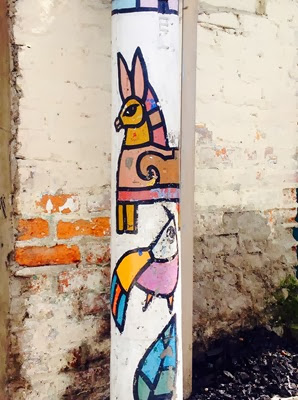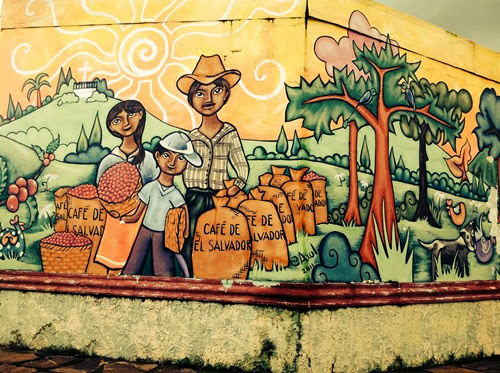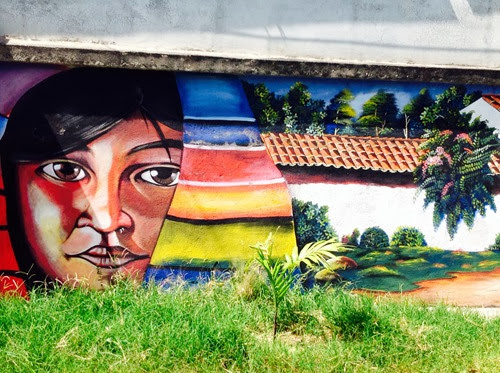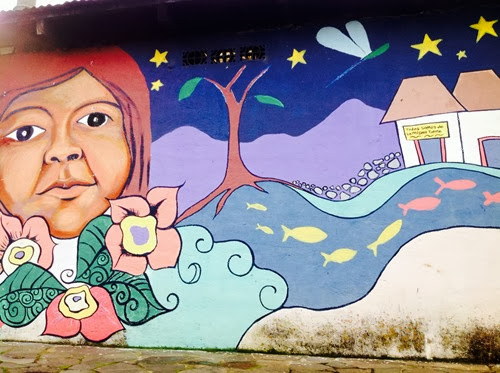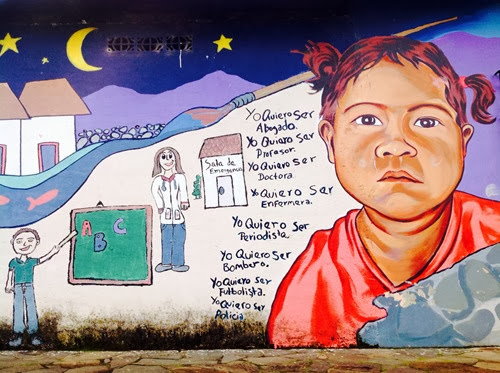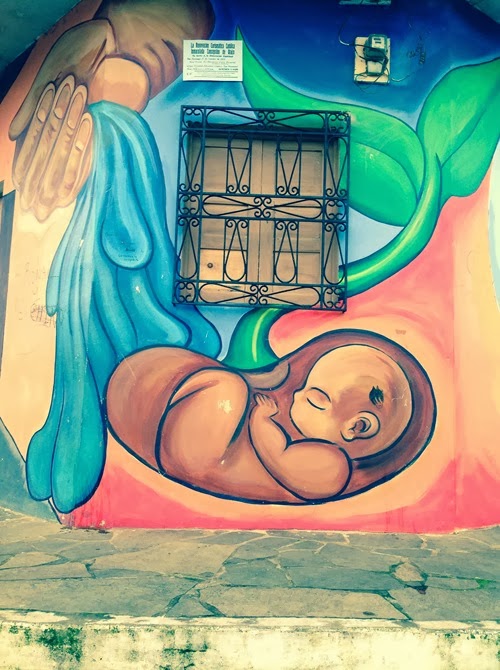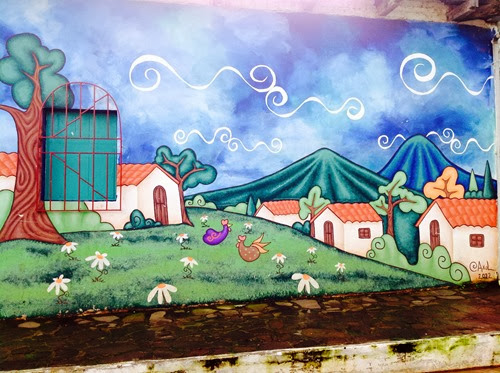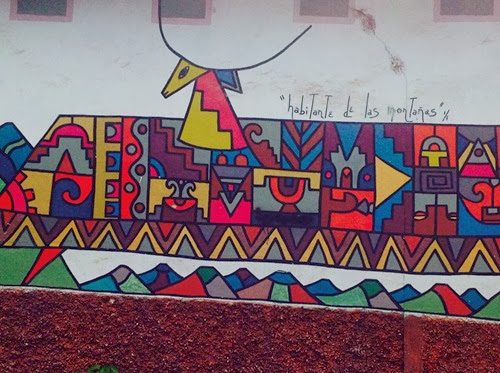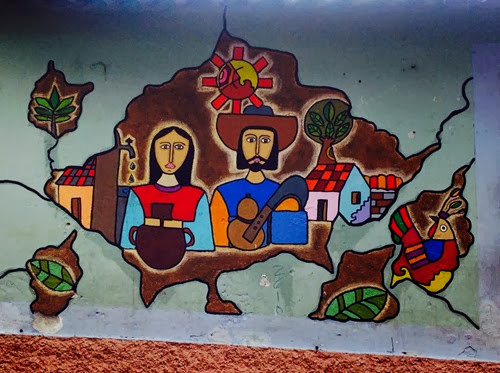
November 27, 2013
November 18, 2013
Murals
We recently took a trip to El Salvador to celebrate Cassie’s 30th birthday. While there, we fell in love with the art scene. As you can see, the bright colors cover empty walls, door frames and light polls. We hope that you enjoy the following murals and paintings as much as we did.
November 11, 2013
Two Years
We recently completed our second year here in Nicaragua. I find myself having to repeat that, in order to believe that it has been two years already. We thought we would follow the same format that we used last year to share more with you about how our year has gone. We hope that you find it enjoyable!
Things we love:
- Nicaraguan food - This was first on our list last year and we will leave it there! Although many people often complain about the food being boring or not having a ton of flavor, we love it! We enjoy eating fritanga food at least one night a week. Believe us, we would eat it more, but this would lead to having to do even more exercises.
- Our mango and avocado trees - It is so fun to have these fresh fruits falling almost year-round. When they aren`t falling, we can find a large variety of fresh fruits and vegetables at the market that is a five minute walk from our home.
- Our work - Our first year involved a lot of restructuring and reorganizing our day to day work here in Nicaragua. This year has felt very good as we have felt at home in our work. We enjoy it very much, find it rewarding and feel fortunate to interact with such wonderful co-workers and students on a daily basis.
- Our MCC team - Our team has been an integral part of our time here in Nicaragua. They are a source of support and friendship and we could not do life or work here without them. We have had some very special friends and co-workers leave this last year. Life here is very different without them and they are missed!
- The people - Everyone that we interact with here is very generous and welcoming. People have been incredibly hospitable - inviting us into their homes, to their family birthday parties, you name it. We feel so fortunate to have a wonderful community here that we can feel apart of.
- The land – In this past year we have had more time to explore different parts of Nicaragua. We are continually amazed at the diverse landscape that this country offers - there are mountains, volcanoes, beaches, rivers, jungles and it is all gorgeous!
- Public Transit – We were used to driving our own vehicles, biking or walking to get where we needed to go. However, now we almost always use the bus system in Nicaragua. It is true that they are often crowded and hot, but it is also a way in which we can feel a part of the people here. And if there is an open seat, it is a great to spend the time reading or getting some work done.
Things we find difficult:
- Economic poverty – We live among people who are economically challenged, we see it every time we leave our homes, the streets of Managua don’t hide the stress and poverty that most of its citizens live in day in and out. It is ugly, it is depressing, it can feel helpless and we are often challenged in what our response should be.
- Spanish – After two years, everyone assumes that we have mastered the Spanish language. We have put ourselves out there, tried every helpful method possible and it is still so very difficult. Everyday conversations are difficult because of where we are at. We so wish that we were further along!
- Being robbed and mugged - This was on the list last year and while we can say that this year our incidents have significantly decreased, it still isn’t fun. It is challenging to always be wondering if you will actually arrive home safely or if you should enjoy a meal out (whether it is in broad daylight or at night). Although we rarely have more than $10 on us, we are seen by others in a different way.
- Our power – To be white and from the United States provides us with power here in Nicaragua. There are days when we wish we could just blend in, not stand out and not be noticed. In a presentation that Cassie was giving last month, she and the participants were discussing the impact of power in our communities. As she shared about her own power here in Nicaragua, she broke down crying. It is something that we deal with every time we leave the house and while we understand that we have a responsibility, a lot of times it would be much easier to leave it at the door.
Things we have learned:
- The people here are resilient. While we see a lot of impacts of unresolved trauma, the drive that these individuals have to keep on going, despite the difficulties, often overwhelms us.
- Language learning is a process. Some days feel okay and others are very hard.
- Community is important. We couldn’t do life day in and out without those around us. We would like to thank the seminary community, our MCC team and you for your love and support throughout the year.
- Our family and friends mean the world to us. While we knew how fortunate we are to have incredible families and friends back home, being away makes it all the more clearer.
- Peace education is a process and is often “un measureable.” We are continually encouraged in the ways that we see people latching on to and incorporating what they are learning in the classroom into their lives.
Things we do automatically: (A lot of these seem the same from last year, so we apologize for the repeat)
- Throw all toilet paper into the trash.
- Plan on 20 minutes to enter or exit our house, it takes the turning eight keys. And keys/locks are not a strength of Cassie’s!
- Move the fans around. It’s always good to have hot air blowing on you.
- Drink lots of water, it is always hot!
- Clean. There is no such thing as a clean house when you live feet from a dirt road and do not have windows screens, but only security bars.
- Set aside everything for a visitor.
- When riding the busses, move towards the back. If you have a seat, be sure to share it with the pregnant lady.
- Assume that things will take much longer than they should.
Things we are looking forward to:
- Deepening the friendships that we have with those around us
- Our classroom interactions
- Cassie’s changing job description at AMC – this will hopefully lead to a better use of her skillset and will bring opportunities to travel to rural communities to interact with the population there
- The arrival of one, maybe two children through the blessing of adoption
- Family and friends visiting
How do you measure a year in the life:
- in gallo pinto: 350 (while we love gallo pinto, living on our own has caused us to eat it less than the average Nicaraguan)
- in bus rides around Managua: 2,190 (approx. On average we each take day 3 busses a day, each bus ride costs us 10 cents)
- in bars of chocolate received from home: at least 25 (each and every one was greatly enjoyed)
- in pounds of coffee: 47 (it is delicious and always freshly roasted)
- in animals killed: we lost count (we added a new member to our family this year, Brisa our almost one year old cat, and she has taken a liking to killing many rodents, birds and large insects)
- in floors cleaned: more than 365 (at least once a day we sweep our floors, both inside and out—yes we sweep our lawn—and we are sure to mop at least three times a week)
- in DIY projects completed: 27 (we have to get creative here and that means that we created, made, painted, shellacked and improvise many things in order to have a home that we enjoy)
- in candles burned: 38 (they create a relaxing and peaceful environment and our neighbors even comment on the great smells)
- in Cokes drank: 52 (every week, Kevin takes pleasure in a Coca-Cola, an exquisite treat here in Latin American simply because it is still made with sugar instead of corn syrup)
- in papers graded: 567 (every week our students have an assignment to complete along with various projects and papers that are due throughout the course of the class)
- in foreign visitors we’ve had: 7 (we always enjoy your visits!)
- in books: 34 (for Cassie) and 21 (for Kevin): (down from last year)
- in tears: just a few (we miss friends and family back home and some days life is just plain hard here)
- in smiles: many (life here is hard, but good. we love the relationships that we have built and look forward to this next year)
Thanks for your support throughout this year. We hope that you have enjoyed our blog updates and that they give you a glimpse of life here, the work that we are doing and more importantly what God is doing.
November 4, 2013
Health Care or Lack Of
We were recently informed of MCC’s change in insurance coverage which now allows us to receive care from the fanciest hospital in Managua. Before this change, Kevin and I took pride in the fact that MCC encourages us to live simply – we use public transportation, live in barrios and have our health care needs met, but by the more moderate providers here in Managua.
The new change brought a lot of questions for us. Will national staff also receive this benefit? They have different types of coverage due to the laws and regulations of Nicaragua. Would we access this new benefit if a health concern arose? Or would we continue at the hospital that has provided quality care for us? Would our decision change if we were to experience a more severe medical need? We have generally been healthy here and have not been concerned that moderate care would impact us negatively. If we were to have kids here, what would we choose for them? Choices, choices, choices. And it seems a bit elite of us to even be having this conversation when the children right next door are not afforded the same choices.
Two weeks ago a 18 year old male from our neighborhood died of dengue fever. He complained that he didn’t feel well, after two days they went into the public hospital and he died on the third day. Preventable, treatable, and not something that people generally die of in the United States. And to make it even worse, he was supposed to get married last week Saturday. They had everything planned and ready to go, and now his family and fiancé have been left to live life without him.
Last Wednesday evening, our neighbor lady came over with a black plastic bag. She was taking donations to purchase coffee and bread for an all-night vigil that would be held later that evening for a 10 year old neighbor girl who passed away that morning. She had been in the hospital for the last month due to appendicitis and three weeks ago things were looking brighter. They were planning to come home, but had to complete one last minor surgery. From what we can understand through neighborhood storytelling and our lack of Spanish knowledge for medical terms, a mistake was made by the doctor and an infection ensued. She died, blind, a week later. To add to the pain, her parents lost their 21 year old son last January in a car accident. Their third and last living child will be born any day. Again, from what we can understand, this death was preventable and treatable, something we would not worry about in the United States.
And this is where we are left, in pain and grief for the loss in our neighborhood and in wondering how we can best support them besides showing up for two hours at the vigil and mass. It also leaves us to wondering why we have choices about our medical care and these individuals do not. Injustice, yes. Inequality, yes. If our neighbors had a choice to access to the healthcare that we had, would they. Of course! Then why wouldn’t we? As we continue to struggle with what is means to live in solidarity, we are forced to examine our choices while admitting that most of our neighbors do not have the luxury of these choices.
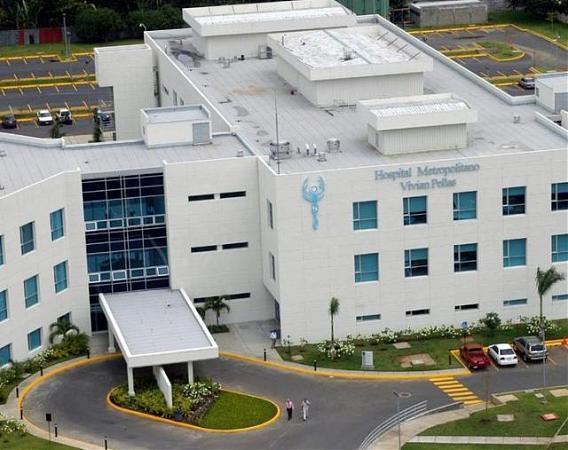
For additional information read:
Dengue on the rise in Nicaragua


